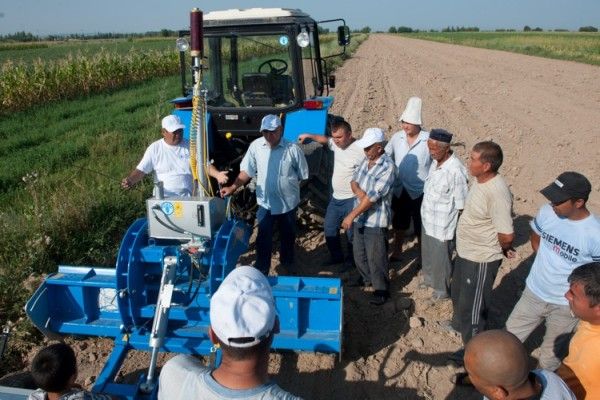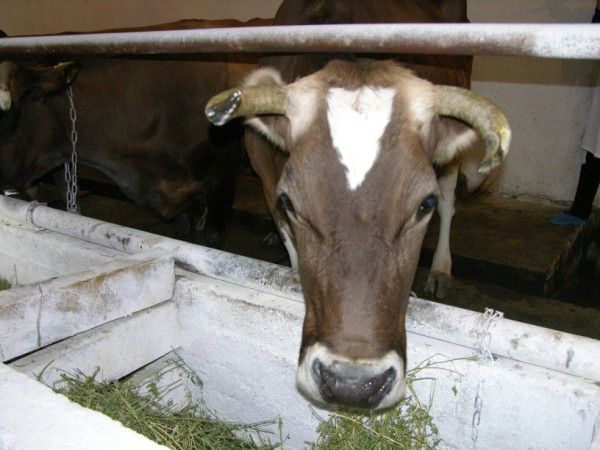BISHKEK (TCA) — Kyrgyz parliament deputies have considered receiving a 40 million euro Polish loan for agricultural producers in Kyrgyzstan.
The loan terms are good, as the Government will receive the loan at 0.5% per year for 25 years, with a five-year grace period. However, Kyrgyz farmers will get the money at 9% per annum.
Complicated terms
According to experts, the difference between the 0.5% rate for the state and 9% for farmers is formed due to currency and political risks. In addition, bank profit and other components are also taken into account.
MPs were also dissatisfied that the loan repayment for farmers shall begin with the first year while the Government enjoys a five-year grace period. It is difficult for farmers to repay a loan in this way if they, for instance, intend to set up an enterprise for processing of agricultural products. They need time to build a shop, install technological equipment and find sales markets. It is necessary to provide at least a three-year grace period for the processing industry, MPs concluded.
The issue with the Polish credit should be resolved promptly; otherwise the creditor can cancel the agreement. Poland has already extended it two times.
In 2014, the governments of Kyrgyzstan and Poland signed a loan agreement according to which Poland will provide a technical loan for agricultural development including 16 million euros for the identification of animals, 22 million euros for the purchase of equipment and 2 million euros for the construction of laboratories. According to the agreement, all equipment will be Polish-made.
Later, the Kyrgyz Government found funds to build laboratories from other sources within the Eurasian Economic Union, so it decided to grant loans only for equipment. Farmers also submitted loan applications for seedlings, seeds, construction of logistics centers, and drip irrigation. As a result, the agreement was renewed to provide loans in cash.
According to MPs, the procedure for obtaining loans is complicated. The local bank, having approved an application, should submit it to Poland, where it will be handed over to the loan suppliers.
Another precondition is the minimum application amount of one million euros. As a rule, there are no rich farmers in local villages. The recently established Guarantee Fund will support entrepreneurs unable to provide collateral for obtaining a loan.
In addition, the loan collateral is too high. It is 180 percent of the loan amount. The National Bank has lowered discount rates but banks have not reduced interest rates and collateral.
Farmers and entrepreneurs from all regions can receive Polish loans on the basis of reliable business projects. In Kyrgyzstan, only five percent of farmers receive loans because they do not know how to develop business plans. Local banks should help farmers by establishing special departments to create business plans for farmers to submit them to banks, MPs said.
The deputies suggested that the state should allocate subsidies to large agricultural producers able to implement large-scale projects, including the construction of modern storage facilities and the production of machinery.
Private veterinary services
The Kyrgyz Parliament has approved a bill on introducing amendments to the Law “On Veterinary Medicine” which suggests transferring certain state powers in veterinary medicine to persons who have the right to veterinary practice, on a contractual basis.
The veterinary doctors and specialists registered with the Veterinary Chamber have the right to be engaged in private veterinary practice.
Some deputies opposed the bill, because they saw a danger in such changes, believing this could kill the veterinary industry. All powers will be transferred to the Veterinary Chamber which does not bear any responsibility for the veterinary services.
According to official data, more than 2,000 private veterinarians work in Kyrgyzstan, annually making about 40,000 preventive vaccinations.
Supporting local producers
The Kyrgyz Parliament has approved the third reading of amendments to the Law “On the Development of Agriculture”. The bill developers offer to provide preferential loans to agricultural producers (plant growing, livestock, poultry, beekeeping, and fish farming) on terms not exceeding 7% per annum. The Government should subsidize the costs of commercial banks from the national budget.
Deputies believe that these measures will help increase the agricultural production and ensure the country’s food security.
Kyrgyzstan imports many agricultural products from neighboring countries. Local farmers cannot compete with Russian and Kazakh products in the local market, because those states provide large subsidies to agricultural producers. Therefore, Kyrgyzstan also has to support its farmers.
To development agriculture, the Agriculture Ministry has to assist producers in growing certain types of crops and raising certain breeds of animals. There are more than 7.5 million sheep and 2.5 million heads of cattle in the country, but they are of different breeds. As a result, farmers cannot obtain necessary quantity of animals of the same breed for wholesale buyers.
It is necessary to encourage farmers to consolidate farms and provide them with long-term benefits so that they could get on their feet. Then Kyrgyzstan will be able to enter the EEU market with high-quality crop and livestock products.
Meanwhile, some experts believe the Agriculture Ministry is inefficient and needs to be liquidated, Amanbank Board Deputy Chairman Bakas uulu Bakhtiyar said at a recent conference on the banking sector and insurance market in Kyrgyzstan.








